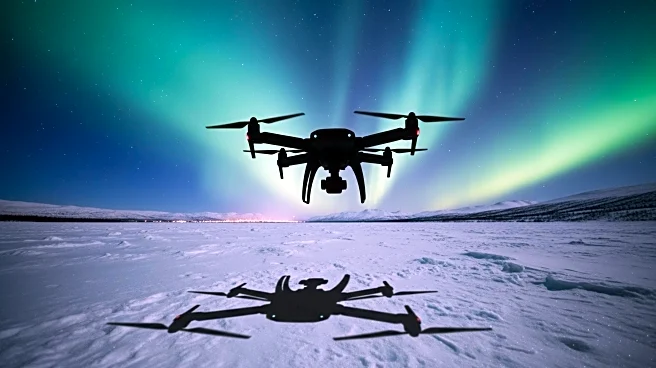What is the story about?
What's Happening?
Iceland's Foreign Minister, Þorgerður Katrín Gunnarsdóttir, has expressed concern over Russia's actions in Ukraine, particularly after reports of Russian drones entering Polish airspace. This incident marks a significant escalation in the conflict, as NATO jets were forced to shoot down the drones, invoking Article 4 of the NATO treaty. This article allows member states to consult when the security or territorial integrity of one of them is threatened. Gunnarsdóttir has urged the European Union to expedite its sanctions program against Russia, suggesting that the EU should move directly to the 19th sanctions package. She also emphasized the need for the United States to support its European allies with stronger measures.
Why It's Important?
The incident involving Russian drones in Polish airspace highlights the escalating tensions in the Ukraine conflict and the potential for broader regional implications. The invocation of NATO's Article 4 underscores the seriousness of the threat to member states' security. Gunnarsdóttir's call for stronger sanctions reflects a growing urgency among European leaders to address Russian aggression more decisively. This situation could lead to increased pressure on the U.S. to bolster its support for NATO allies, potentially affecting international relations and defense policies. The economic impact of further sanctions could also influence global markets and trade dynamics.
What's Next?
The next steps may involve NATO and EU discussions on enhancing security measures and sanctions against Russia. The U.S. might face diplomatic pressure to increase its involvement in supporting European allies. The situation could lead to further military readiness and strategic planning within NATO to prevent future airspace violations. Additionally, the EU's decision on the proposed 19th sanctions package could have significant implications for international relations and economic policies.
Beyond the Headlines
The incident raises ethical and legal questions about airspace sovereignty and the use of military force in defense. It also highlights the cultural and political dimensions of international alliances and the balance of power in Europe. Long-term shifts may include increased military collaboration among NATO members and a reevaluation of defense strategies in response to emerging threats.
















